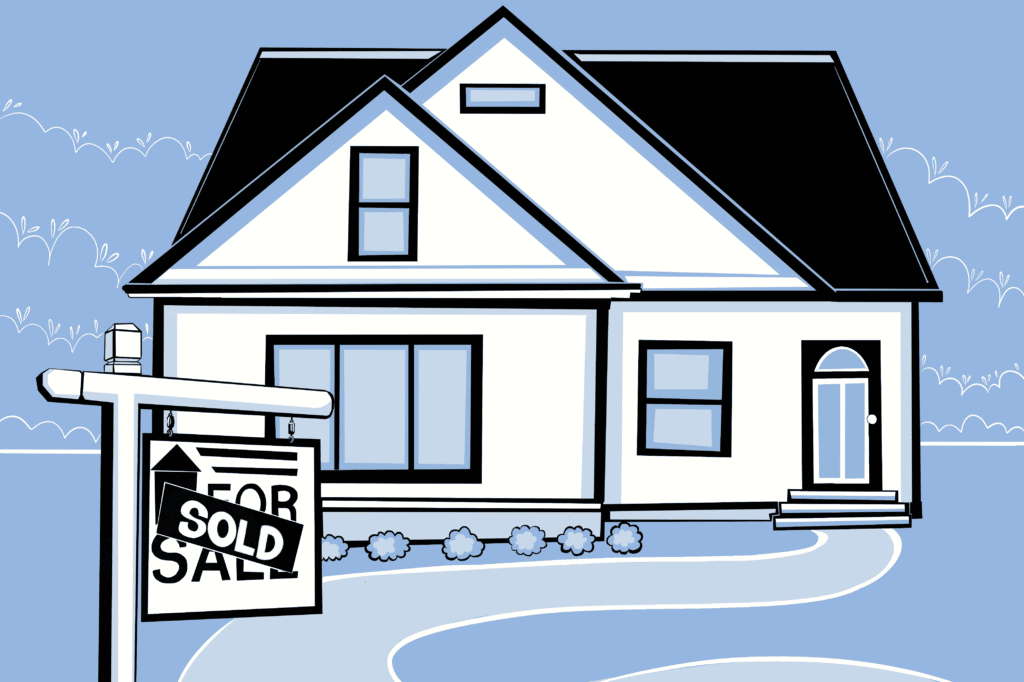Here are the real estate mistakes that investors should avoid.
Expecting to become an expert overnight in real estate investing is unrealistic if you’re just starting. Though it requires knowledge, perseverance, and skill, you can make money buying and selling properties.
Additionally, it can be useful to be aware of some common errors that people make when they first begin investing in real estate so that you can help prevent them.
If you intend to invest in real estate, do not anticipate it to be simple.
While you might have the resources to launch your new business, it takes much more to be successful. Knowing the typical errors more experienced investors have made will also help you steer clear of them.
If you are looking to invest as an expat or high-net-worth individual, which is what I specialize in, you can email me (advice@adamfayed.com) or WhatsApp (+44-7393-450-837).
You should avoid making the following common real estate mistakes that investors should avoid.
15 Real Estate Mistakes That You Should Avoid
1. Absence of a Plan
One of the most common real estate mistakes that investors should avoid is the lack of planning.
Making a plan should come first. Purchasing a home without understanding how it will produce income or gains is the absolute last thing you want to do.
It can be challenging to resist the buying frenzy in a hot real estate market. But you need to step back and make a plan that takes the market’s volatility and your assumptions into account. You must select an investment strategy prior to obtaining a mortgage or putting down cash.
Which design of the home are you seeking? For instance, single-family homes or multifamily homes are both options. There are also holiday lodgings, and buildings with a mix of uses, shops, or offices. Then, start looking for properties that fit your predetermined purchase strategy.

2. Not Purchasing in your Neighbourhood
This is a major issue. Even if you hire professional management, having a hands-on approach to managing the property is especially important when you are just starting in real estate investing.
Do you want to travel four hours or more to check on your investment? Even worse, do you want to have to arrange a flight?
How will you know if a tenant’s unsightly junk is stored on their patio or the lawn is brown if units aren’t renting? Buying nearby also allows you to work with local experts you know and trust to assist with the transaction and manage the property.
3. Not Doing a Reputation Check on the Builder
The legitimacy of your investment will be ensured by your selection of a reputable and trustworthy real estate developer. A trustworthy real estate firm will obtain all required legal approvals and documents for the sale of real estate.
They also make sure that RERA has given their initiatives the green light in order to guarantee transparency in all dealings. Additionally, the talented developer always goes above and beyond to satisfy their clients.
High-quality construction materials and outstanding customer service are guaranteed if you buy a house or apartment from a reputable seller.
Browse the company website, social media accounts, and project sites to get a complete picture of the developer. You could also inquire about previous buyers’ or clients’ opinions to assess the builder’s reputation.
4. Not Having a Clear Understanding of Your Goals Before You Shop
You’d be surprised at how frequently first-time buyers of income property don’t have a clear understanding of their investment goals at the outset.
Do you want to buy locally or elsewhere in the state? What is the bare minimum return you will accept on your cash investment? How long do you intend to keep the house? How much money can you spend on renovations?
And on top of everything else you already have on your plate, can you manage and oversee this property? Give clear answers to these questions at the beginning to clarify your goals.
5. Researching Poorly
One of the real estate mistakes that investors should avoid is researching poorly.
Without checking to see if some of the information in the marketing flyer is fiction, it is simple to just accept it as fact.
The property is described as being offered at a 6 cap, being in excellent physical condition, and having excellent tenants. The financials, however, indicate a 4.8 cap, which indicates that it is overpriced.
Moreover, the roofs’ remaining useful life, according to the property condition report, is only four years, and you find out that some of the tenants are paying their rent either late or not at all after running a rent collection report.
If you take the time to complete all of your due diligence, you will catch issues like these and will be armed with information to bargain for a lower sales price before your due diligence period expires.
Most people compare various models, have numerous inquiries, and try to decide whether a purchase is worthwhile before making it, whether it be for a car or a television. Even more thorough research should be done before making a home purchase.
Whether a real estate investor is a private homeowner, a prospective landlord, a flipper, or a land developer, there are research considerations for each of these categories.
Inquire thoroughly about the property as well as the surrounding area (neighbourhood) before making a decision. In the end, what use is a nice house if a college fraternity known for its all-night keg parties is right next door? Except if you’re specifically going after renters who are students.
The questions that prospective investors ought to enquire about the properties they are thinking about are listed as follows:
- Is there a business nearby, or will there be significant construction soon?
- What plans does the city have for the neighbourhood and those around it?
- Has the neighbourhood undergone significant changes in terms of its population makeup or type of household?
- Is the property situated in a flood plain or an unfavourable region, such as one with radon or termite issues?
- Do you need to take care of the foundation or permit issues with the house?
- What significant items, such as appliances, will need to be replaced in the home?
- What is the main justification for selling the house?
- What was the most recent purchase price of the house, when was it paid, and how much?
- Exist any troubled areas in the town if you’re moving there?
- What are the distances to important facilities like supermarkets, hospitals, and big employers?

6. Not Accurately Calculating The Cost Of Value-Adds
Imagine that you’ve discovered an apartment complex with rents that are below market because the interiors are worn out.
You receive a rough estimate of $5,500 per unit to replace the kitchen and bathroom cabinets, lighting fixtures, and flooring, and your accepted offer is based on this figure.
After the sale, it is impossible to find a contractor who will work for less than $9,000 per unit. Now that your cash-on-cash return has been reduced from 8% to 5.5%, you are kicking yourself for purchasing this property.
7. Making the Wrong Choice of Property Type
One of the most common real estate mistakes that investors should avoid is making the wrong choice of the type of property.
The kind of property you want to buy should be decided upon once you have decided to invest in real estate. Buy a residential property or make an investment in a commercial space.
Most new investors would rather ignore this factor because they lack real estate industry experience or knowledge. You risk losing money and creating dead investments if you choose poorly when buying real estate.
There will always be a high demand for properties, so think about buying one in a desirable area.
8. Failure To Apply For The Correct Loan
Know what prequalification inquiries to make of the loan officer for the borrower and the property to ensure both qualify at the outset before getting involved in the loan preapproval process.
Your goal is to avoid something similar to this from occurring: Just before your offer is accepted, you discover a fantastic loan with a fixed rate of 4.5% for 30 years and a 30-year amortization. You submit a loan application.
The loan is rejected because your net worth falls short of the minimum standard set by the lender two weeks prior to the drop-dead date in your purchase contract.
Whoops! Why wasn’t this verified by the bank before the loan was initiated? You can currently only qualify for private money loans at an 8% interest rate, and they must close on time.
Once you think you found the investment property that you like, do not haste to buy it. Instead, take the time to look beyond its appearance, investigate its credentials, confirm that it isn’t too far from your home for unexpected visits, be aware of your investment goals, accurately estimate the cost of renovations, and confirm upfront that you will be eligible for the loan you apply for. I promise you’ll get a better night’s sleep.
9. Taking on Every Task by Yourself
One of the most common real estate mistakes that investors should avoid is doing do-it-yourself too much. Many buyers assume they are either experts in the field or are capable of concluding a real estate deal on their own.
Even though you may have completed several deals in the past that went smoothly, things might not go as smoothly in a down market, and there is no one you can turn to if you want to make a real estate deal more favourable.
Investors in real estate should make use of all available tools and network with industry professionals who can guide them toward the best deal.
An informed real estate agent, a skilled home inspector, a handyman, an experienced lawyer, and an insurance agent should be at the very least on a list of potential experts.
These professionals ought to be able to inform the investor of any issues with the house or neighbourhood. Or, in the case of a lawyer, they might be able to alert you to any title flaws or easements that might one day come back to haunt you.

10. Not Consulting a Professional
Not consulting a professional is one of the real estate mistakes that investors should avoid.
When making real estate investments, the majority of investors don’t consider seeking professional advice. Without consulting any business experts, they think they can still be successful investors.
However, this might cause them trouble down the road because there might be a lot of undiscovered issues with the properties. Working with a reliable real estate professional helps you avoid scam offers and ensures that your property is free from any liens
A knowledgeable real estate agent can assist you in finding a good property at a fair price. Always seek the advice of a financial advisor to plan your spending and prepare for investment.
11. Disregarding the Needs of Tenants
If you plan to buy real estate to rent out, think about the types of tenants you might get, such as young families, singles, or college students.
While singles might be looking for mass transit access and close-by nightlife, families will want low crime rates and good schools. How close is it to the beach or other nearby attractions if the purchase you’re considering is a vacation rental?
Try to match your investment to the types of renters who are most likely to live there.
12. Forgetting The Local Nature of Real Estate
Making decisions about purchases that are likely to result in a profit requires knowledge of the regional market.
This entails delving deeper into topics like inventory levels, supply and demand problems, inventory levels, and land and home values. You can decide whether to buy a particular property by getting a feel for these factors.
13. Obtaining Subpar Financing
There are still many exotic mortgage options available, and the goal of these mortgages is to enable buyers to purchase particular homes that they might not otherwise be able to afford using a more traditional, 30-year mortgage agreement.
Unfortunately, a lot of buyers who obtain interest-only loans or adjustable-rate mortgages (ARMs) eventually pay the price when interest rates increase. Make sure that’s not you.
Make sure you have the resources to continue making the payments (if interest rates rise) or a backup plan to switch to a more traditional fixed-rate mortgage in the future.
In order to avoid these issues, it is ideal to start with a fixed-rate mortgage or to pay cash for your investment home.
14. Overpaying
The most common error made by new investors who buy investment properties is overpaying for the property because they like the way it looks.
Do you want to forgo your financial goals and choose based solely on emotion, unless you plan to live in the property, which is unlikely? This should be an investment, right? Start imagining it as a brand-new company that needs to make lots of wise choices to be protected.
When buying investment real estate, there is no action you can take more crucial than paying the right price. Let’s revisit the four-plex illustration.
You reason that even though the $950 average monthly rents are in line with market rates, they can probably be increased by $100 overtime to make up for the $50,000 overpayment you made for the property. It’s hard to imagine, but you’ll need to pay more in rent for over ten years before you make up the difference.
This matter has a tenuous connection to the one about conducting research. Finding the ideal home can be a time-consuming and frustrating process. Potential buyers are naturally eager for the seller to accept their offer when they discover properties that fit their needs and preferences.
The issue with anxious buyers is that they frequently overbid on properties. A cascade of issues may result from making an excessive offer on a home.
Overextending yourself and taking on excessive debt could result in higher payments than you can handle. As a result, it might take a while before you get your money back.
Start by looking up recent sales of nearby properties that are comparable to your dream investment to determine whether the price is reasonable. Given their access to a database of multiple listing agents, real estate brokers should have little trouble providing this information.
As a fallback, however, just take a quick look at comparable home prices in real estate databases or even in your neighbourhood newspaper.
Unless the home has distinctive qualities that are likely to increase its value over time, logic says you should try to keep your bids comparable to other homes sold in the area.
Other opportunities will always exist. The chances are in your favour that another house will exist that will meet your needs, even if the negotiation process drags on or fails. Just be persistent in your search.
Think about your return on investment (ROI) before making improvements; if the house still has a leaky roof, it might be difficult to recoup your money from a high-end bathroom renovation.
15. Underestimating Expenses
All homeowners surely understand that owning a home involves much more than just paying the mortgage. Investors in real estate are not exempt from this rule, of course.
In addition to the price of putting in a new roof or making structural changes to the house, there are expenses related to maintaining the yard and making sure that appliances (like the oven, washer, dryer, refrigerator, and furnace) are in good working order. Property taxes and insurance must also be considered.
The best advice is to create a list of all the estimated monthly expenses related to owning and maintaining a home before actually submitting a bid.
If you intend to rent out the property, you can determine the return on investment (ROI) for the rental once all the numbers are added up and the monthly rent is taken into account.
This will give you a better idea of whether the rental income will be sufficient to pay the mortgage and maintenance expenses. You can determine if you can afford the property based on this.
For those who buy properties to flip, estimating costs before making a purchase is also essential. This is due to the fact that their profits are directly correlated with the length of time it takes to buy, renovate, and resell the house.
Investors should create this list in any case. They should also pay close attention to any short-term financing fees, prepayment fines, and cancellation fees (for utilities or insurance) that might be incurred if the house is quickly sold.
Final Thoughts
If real estate investing were simple, everyone would do it, but that is not the case. Fortunately, by doing your research and making the necessary preparations before signing a contract, you can avoid many of the difficulties faced by investors.
Pained by financial indecision? Want to invest with Adam?

Adam is an internationally recognised author on financial matters with over 830million answer views on Quora, a widely sold book on Amazon, and a contributor on Forbes.



